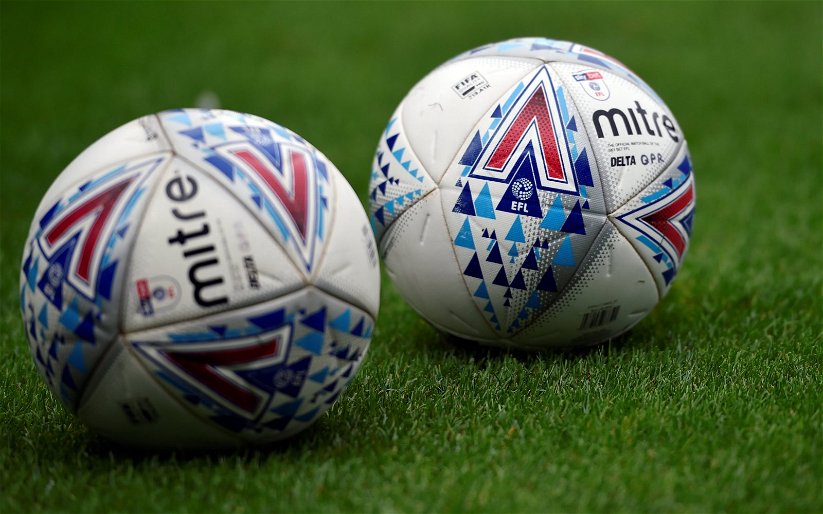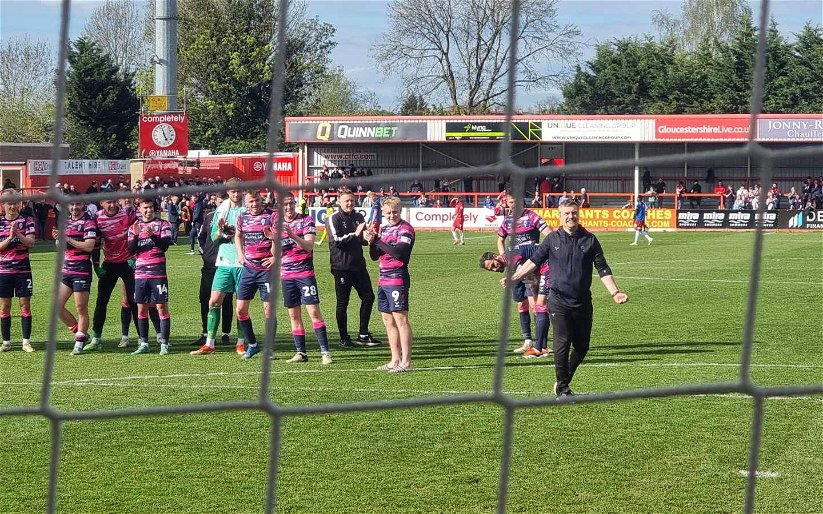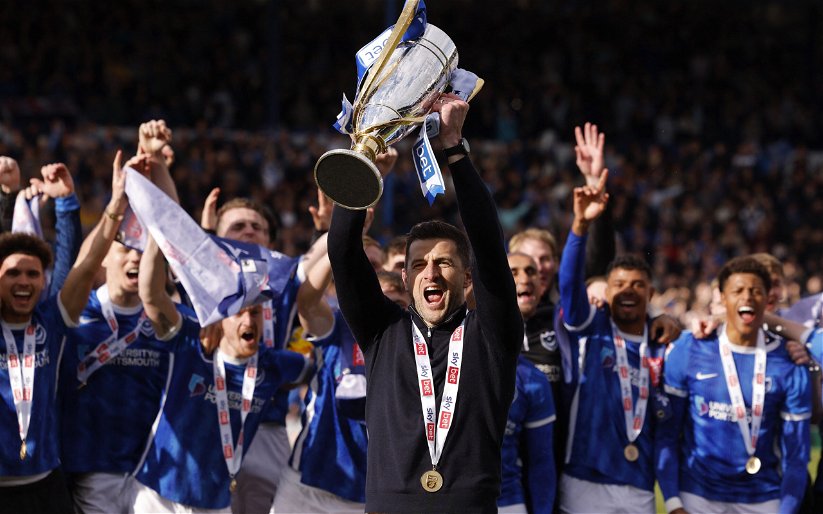Very few managers in the lower divisions can boast the playing experience of Mark Robins, who was an early product of the Manchester United conveyor belt of homegrown players which began in the late 1980s. Alex Ferguson, in particular, might feel indebted to his young striker: it was Robins who scored the famous winner at Nottingham Forest in January 1990 which kept United in the FA Cup and almost certainly saved Ferguson’s job amidst intense media speculation. Robins also scored the winner against his home town club Oldham in the semi-final as United went on to lift the FA Cup that May. Ferguson stayed at Old Trafford and proceeded to dominate European football for the next 20 years. Small margins, but huge.
Robins featured only intermittently for United due to the form of Mark Hughes and Brian McClair, but he did make three appearances as United won the European Cup Winners Cup in 1990-91, scoring one goal against Wrexham in the second round. He was an unused substitute as United beat Barcelona 2-1 in the final in Rotterdam, and collected a winner’s medal in the European Super Cup the following season, also as an unused substitute. He made very few appearances after that, ultimately failing to keep up with the increased expectations of Ferguson’s revolution, and left for Norwich in the close season of 1992 for £800,000. He is still remembered as an impact substitute at Old Trafford, making 29 of his 48 First Division appearances from the bench. It should also be remembered that Robins won 6 caps for the England U21 side whilst at Old Trafford, scoring an impressive 7 goals.
Robins got off to a great start at Norwich, scoring twice in a 4-2 win at Highbury on the opening day of the 1992-93 season. Norwich were to lead the inaugural Premier League table for much of the season before finishing third. The champions were none other than Manchester United, their first title for 26 years. The success in Europe surprisingly continued at Carrow Road, as Robins was part of the side which famously won 2-1 at Bayern Munich in the UEFA Cup in October 1993; also in the Norwich side that night was a certain Chris Sutton, recently converted to a striker from centre half. Until Liverpool won 3-1 on their way to last season’s Champions League title, Norwich were the only English side to have beaten Bayern in Munich. His time at Carrow Road was soon to end, departing for Leicester in 1994-95 for £1 million after falling out with manager John Deehan. His appearances for Norwich were restricted by injury, a theme which would continue for the rest of his playing career.
His first season at Leicester ended in disappointment as they were relegated from the Premier League in their first season after promotion. They bounced back via the play-offs at the first attempt, with Robins appearing as a substitute in the 2-1 win over Crystal Palace. He was back at Wembley the following season, helping Leicester to a League Cup Final replay win over Middlesbrough. Unable to hold down a regular starting place at Filbert Street for much of his time there, he was sent on loan to FC Copenhagen and Reading before leaving for the now-defunct Spanish Second Division side Ourense for a short period. An unhappy spell with Greek side Panionios came next, followed by brief stays at Manchester City and Walsall.
His playing career appeared to be fizzling out when he signed for Ronnie Moore’s Rotherham United at the age of 30 in the summer of 2000. Newly promoted from the Third Division (tier 4), Robins scored 24 league goals as Rotherham finished second to win promotion to the First Division at the first attempt. Life in the second tier was harder, although Robins still managed 15 league goals as Rotherham stayed in the division on goal difference from relegated Crewe. The goals dried up in 2002-03, although he did manage 6 in 8 games on loan at Bristol City. Interestingly, Lincoln were rumoured to be in for Robins at this time. After a short spell with Sheffield Wednesday, Robins dropped into the Conference in 2004-05 with Burton Albion. He retired at the beginning of February 2005 when he was appointed assistant manager to Alan Knill at former club Rotherham, and his coaching career had begun.
When Knill was sacked in March 2007, Robins took over as caretaker with the appointment made permanent the following month. Unfortunately, he could not prevent the Millers being relegated from League One, and oversaw a season of consolidation back in the basement the following year. Robins did a good job at Millmoor in the face of some challenging financial problems, which ultimately led to administration in the summer of 2008. Having been deducted 17 points at the start of the 2008-09 season, Rotherham were favourites for relegation from the Football League. Astonishingly, a 3-0 win at Notts County as early as 28 December 2008 took Rotherham out of the bottom two. Robins was immediately linked with the vacant manager’s job at Norwich after the sacking of Glenn Roeder, but the move did not happen. Rotherham went on to finish in 14th place, but without the points deduction, they would have finished 5th and reached the play-offs.
The following season started in a similar style, and Rotherham led the League Two table when Robins left for neighbours Barnsley, at that time sitting at the foot of the Championship. Barnsley recovered to finish 18th, but a lack of progress the following season led to him being given a year’s notice by the board. Robins resigned three days later, and was out of football for more than a year before joining League One strugglers Coventry on a three-and-a-half-year contract in September 2012. The Sky Blues went from relegation candidates to play-off contenders in a very short time as well as good performances in the three cup competitions, but Robins departed for Championship side Huddersfield after just five months. His stay at Huddersfield was undistinguished, ending after a 4-0 defeat at home to Bournemouth on the opening day of the 2014-15 season. He resurfaced at League One Scunthorpe a month later on a three-year contract but lasted little more than a year before the bullet came his way once more.
An unexpected return to Coventry then followed at the start of March 2017, by which time his former club was 13 points adrift of safety at the foot of League One. Relegation was inevitable, but the club managed to win the Checkatrade Trophy in his sixth game in charge. By far the biggest club in League Two, Coventry were expected by many to bounce straight back up at the first attempt in 2017-18. Despite remaining in the top seven for the entire season, Coventry seldom troubled the top three places and only secured their play-off place on the final day with a 0-0 home draw against relegation-threatened Morecambe. Bizarrely, their sixth place was actually their highest finish in any division since 1970. A comfortable 5-2 win over Notts County took Coventry back to Wembley a year after their Checkatrade Trophy win, and a dominant performance saw promotion secured with a 3-1 win over Exeter. It gave Robins his first promotion after eleven years in management.
Coventry had a good first season back in League One in 2018-19 before two wins from their last eight games saw their play-off challenge eventually fizzle out. Sadly, the close season will be remembered for the wrong reasons. Ongoing legal disputes with landlords Wasps saw Coventry lose the use of the Ricoh Stadium for the second time in six years. Robins called the situation ‘an absolute disgrace’ and pointed out the irony of Coventry being named City of Sport for 2019. Coventry have no option but to head for St Andrew’s this season and will effectively be playing every game away from home. City may well have been expecting to mount a serious promotion push this season, but exactly how significant an impact that will have remains to be seen.

Key:
P = Promoted; R = Relegated; SF = Lost in play-off semi-final; F = Lost in play-off final; PO = Won play-off final; D = Demoted.
Figures are league games only; cup matches and play-offs are not included.
League position shown is either the position at the end of the season or the position at the time of departure
** Rotherham deducted 17 points in 2008-09; true final league position would have been 5th

Writer: Scotimp
Who Are The League One Managers? No.8: Mark Robins (@Coventry_City):https://t.co/jcvbcqCyQb#PUSB #SkyBlues #SkyBetLeagueOne
— Vital Lincoln City (@VitalLincoln) July 18, 2019
https://www.facebook.com/VitalLincolnCity/posts/2303381486364750



